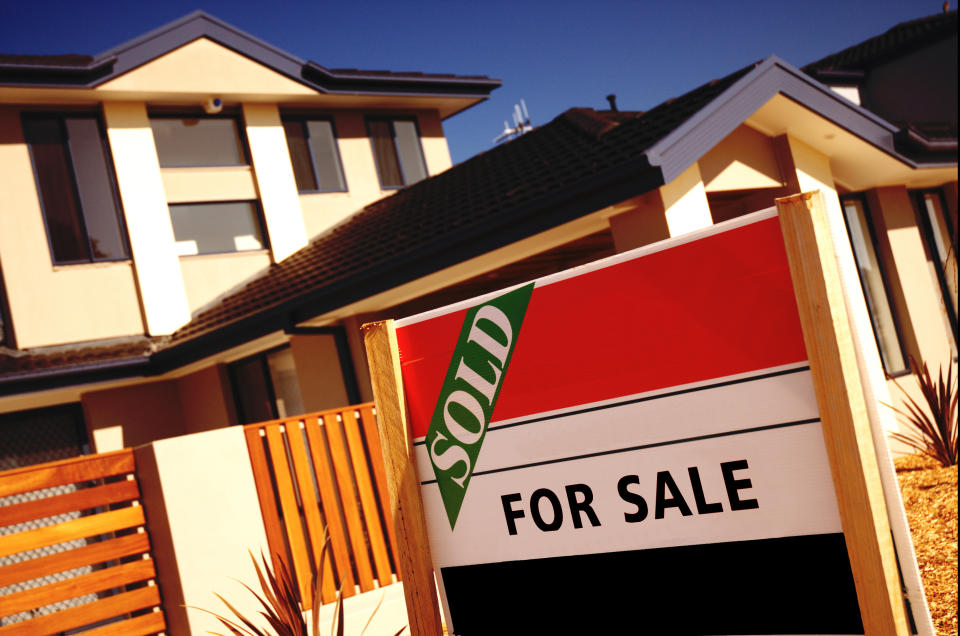Will stamp duty really be abolished?

With the stamp duty ‘rivers of gold’ now turning into rivers of mud, state governments are looking for a more broadly-based tax system to keep their budgets afloat.
One suggestion up for debate is the prospect of nixing stamp duty in favour of broader taxes that will continue to drive income for them, year after year.
Whilst ongoing, secure funding is obviously essential to keep our state budgets healthy, I believe a broader tax policy can only be bad news for those who already own property and have already (quite literally) “paid their dues”.
I’ll explain why in a moment – but first, why has talk of abolishing stamp duty started to gain traction in the midst of a pandemic?
And what does it mean for you?
More from Michael Yardney: Property snapshot: Are house prices actually going down?
More from Michael Yardney: Coronavirus will hit Aussie property markets: What that means for you
More from Michael Yardney: Expert's view: ‘I have no idea what will happen to property prices’
Why is stamp duty in the news?
According to the Reserve Bank Governor Phillip Lowe, the best way for the nation to recover from this once in a century crisis is for governments to underwrite a business-led recovery.
He’s suggesting that the way forward is to embrace the Henry Tax Review and adopt “long overdue tax reforms”, with tax reform across three pillars: income generation, consumption and land.
If I read between the lines this is actually a secret code for cutting business taxes, increasing the GST, and abandoning state-based property stamp duties in favour of land tax.
It’s the latter that I’m going to discuss in this article because in the short term, an adapted tax policy that looks at removing stamp duty may seem like a good idea.
In reality, it could distort markets, increase the financial burden on everyday Australians and it may even lead to an increase in property prices.
There’s one reason and one reason only behind these suggested reforms: to increase the tax base.
Broadening the tax base would take away the state and territory governments’ exposure to the cycles of the property market.
You see, during the booming property years, state governments have benefitted from substantial stamp duty revenues.
They love the “rivers of gold” that flow during the boom times, but during the downtimes, there’s less certainty for their budgets, as stamp duty comprises their main income source.
In fact, while stamp duty remains a large source of revenue for all state and territory governments, it accounts for a whopping 30 per cent of the self-raised taxes of NSW, Victoria and Queensland.
Now, I’m no fan of stamp duty – as a long-term property investor and landlord, I’ve paid my fair share of it over the years, and it’s never fun handing over a cheque worth tens of thousands of dollars to the State Revenue Office.
But it boils down to this…
Stamp duty is a discretionary tax
If you don’t buy property, you don’t pay it.
It may not be fun, but it is fair.
Now, rather than a discretionary tax, every single person in Australia is going to end up paying a little extra for broader taxes that bite at everyone’s budget.
Furthermore, if you take stamp duty away, you’re going to take away a massive barrier to entry and increase demand for property.
This could push property prices higher and create an artificial property bubble as demand soars.
One such proposal from The Property Council’s even goes as far as to call for an expensive ‘New Home Boost’, which would see buyers of brand new homes pocket a $50,000 sweetener, whilst also avoiding paying stamp duty.
Their proposal asks for:
Buyers of newly built homes to get a $50,000 grant from the federal government;
Broad-based tax reforms that include the axing of state Stamp Duty taxes;
Widening the GST in the medium term to include fresh food, health and education – once you widen this, I’m not sure how you could reel it back in again?
The federal government has already pledged over $300 billion in an effort to pull Australia out of this pandemic-led economic crisis.
Where the government could possibility find the funding to pay for $50,000 per new home is beyond me.
All of which leads to the question…
How likely is it that this stamp duty reform is set to gain momentum?
Well, federal Treasurer Josh Frydenberg confirmed that tax reform is being considered in his ministerial statement on the economy.
But so are a whole host of other economy-boosting measures, including increased infrastructure spending, skills programs and industrial relations reforms.
In these uncertain times, nothing can be discounted entirely.
In my view, it’s a very brave politician who would introduce such a seismic change to Australia’s taxation system right now.
Michael Yardney is a director of Metropole Property Strategists, which creates wealth for its clients through independent, unbiased property advice and advocacy. He is a best-selling author, one of Australia's leading experts in wealth creation through property and writes the Property Update blog and hosts the popular Michael Yardney Podcast.
Follow Yahoo Finance Australia on Facebook, Twitter, Instagram and LinkedIn.

 Yahoo Finance
Yahoo Finance 

